
Welcome back! While in Part 1 of our blog on AMCAT Computer Science Module, we explained all that went into this specific piece of the skill assessment test, this is a more practical helpline.
Here, we now explore how you can solve questions from either of Computer-based modules with ready examples and how you should prepare for them.
Solved Sample Papers for Computer Programming (Tech and Non-Tech)
1. Consider this question:
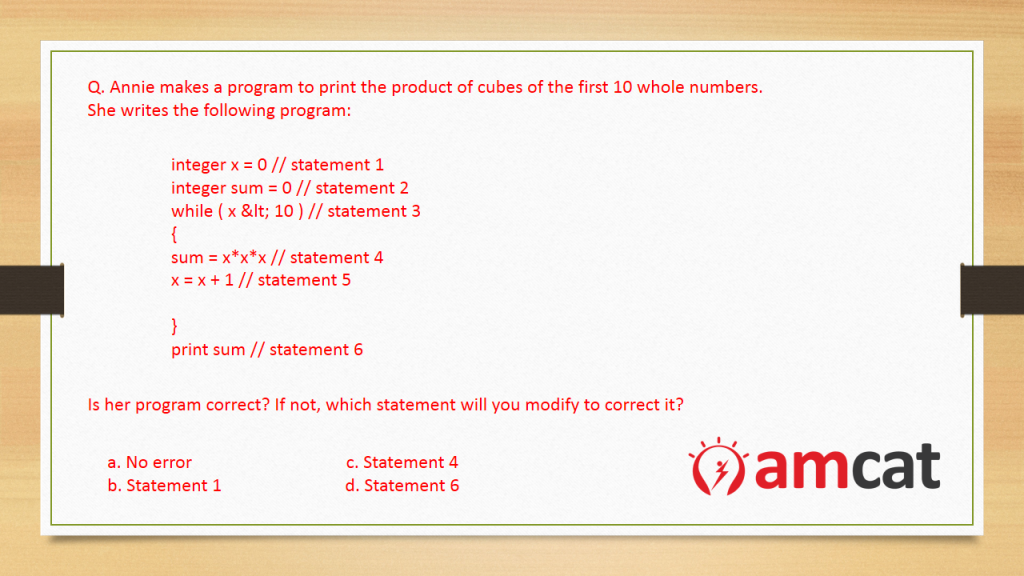
The Answer – Option D
How, you wonder? Here is the solution:
Step 1: Statements 1 and 2 initialize the variables. At statement 3, the loop is initialized with the condition of ( x< 10 ).
Step 2: The loop body starts here, and statement 4 calculates the sum for the respective iteration and statement 5 increments to the next iteration count. The loop body ends here.
Step 3: The problem here is that the sum is printed after the loop ends, i.e., for the last iteration only. It doesn’t print the sum for all iterations. So Statement 6 should be inside the loop body.
2. Can you answer this question?
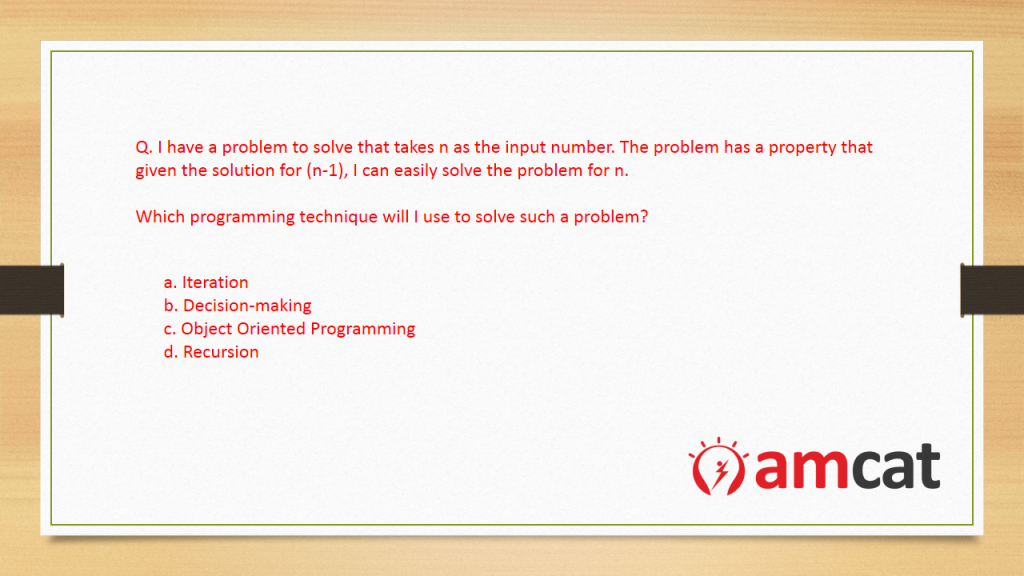
The solution: Option D
How? Here is an explanation:
Recursion is a method where the solution to a problem depends on solutions to smaller instances of the same problem. Recursion incorporates the method of solving a problem by dividing it by a number of similar steps from base case 1 to n.
3. Try your hand at another:
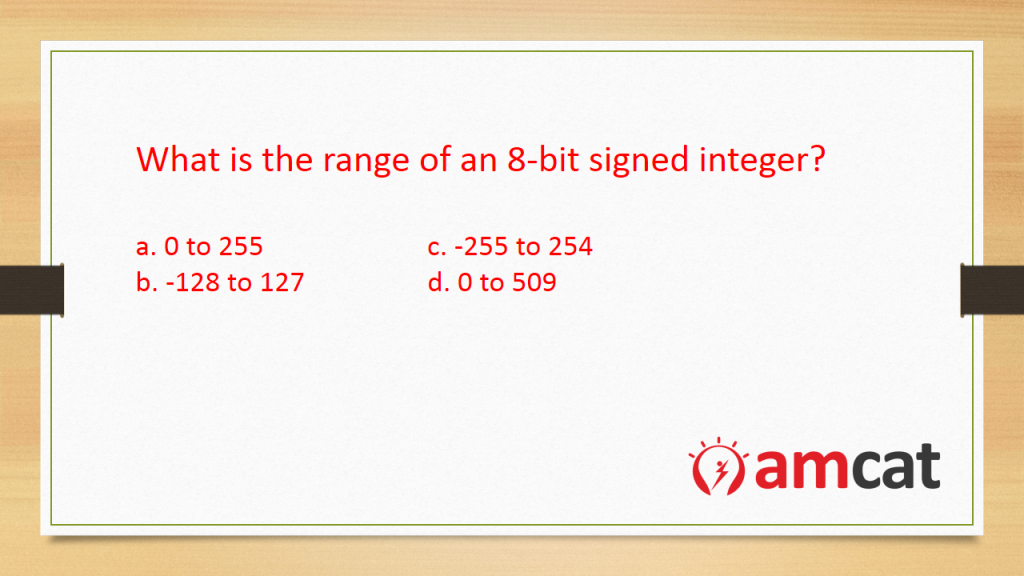
The solution: Option b
Solution:
1: n bits represent numbers from −2 (n−1) through 2 (n−1) −1 for signed integers.
2: For n=8: −2 (8−1) to 2 (8−1) −1 = −2 7 to 2 7 −1
3: Hence the range is -128 to 127.
Solved Sample Papers for Computer Science:
1. Can you try to solve this one?
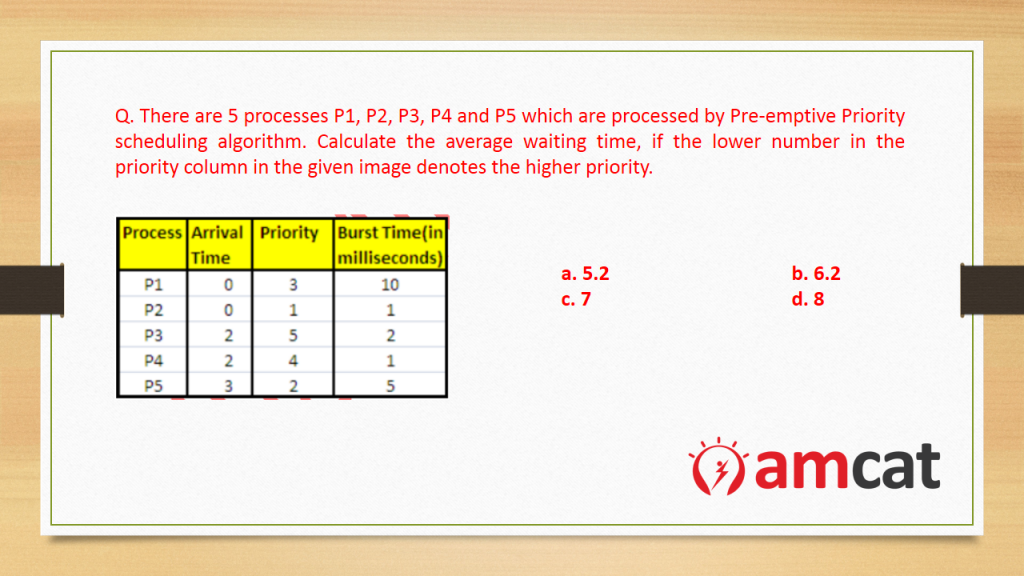
The solution: Option d
How? The order of processes is
Process order: P2 -> P1 -> P5 ->P1 -> P4 -> P3
Time taken: 1ms->2ms->5ms->8ms->1ms->2ms
So, the average wait time is
Wait time (P1+ P2+P3+P4+P5)/5 = (0 + (1+5) + 17 + 16 + 3)/5 = 8
2. Try your hand at this question:
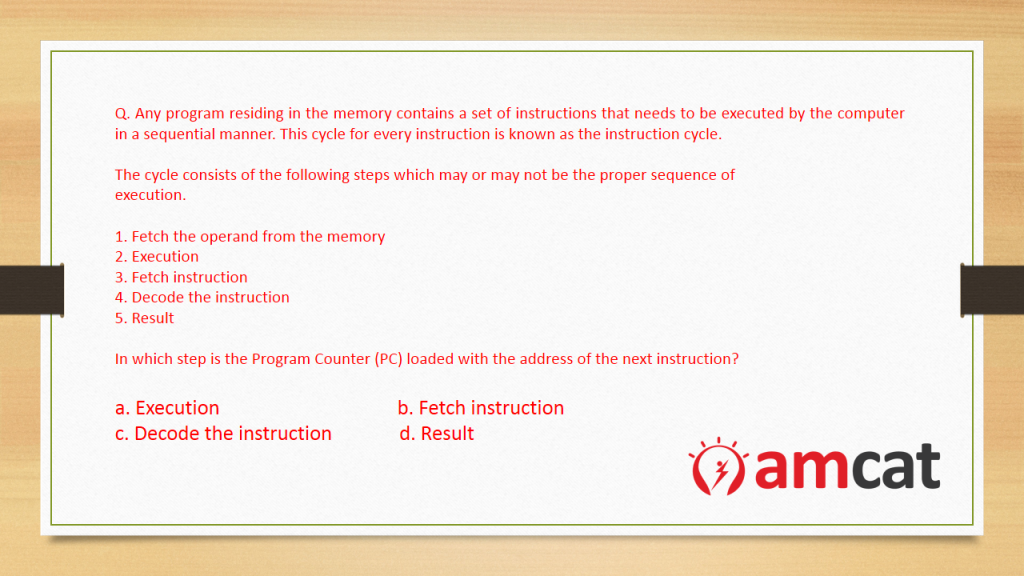
Correct Answer: Option b
Solution: In processors, the PC is incremented after fetching an instruction, and holds the memory address of (“points to”) the next instruction that would be executed.
3. And this one?
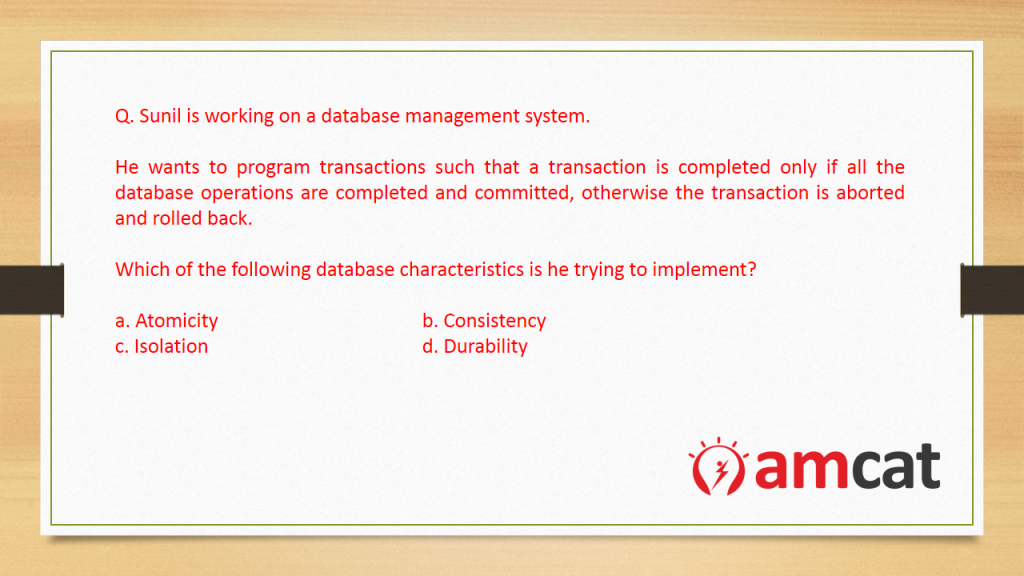
Correct answer: Option b
Solution: Consistency is the property where a transaction either creates a new and valid state of data, or, if any failure occurs, returns all the data to its state before the transaction began.
Still have doubts about AMCAT Computer Science modules? Leave them in the comments section below. Or consider opting for the AMCAT Test – preparing for each section accordingly.
You can also read up on our following stories on Cracking the AMCAT:
Cracking the AMCAT Test: Information Gathering and Data Synthesis
Cracking the AMCAT: How to solve (and score) in Quantitative Ability
Cracking the AMCAT: How to solve (and score) in AMCAT English Language Test
Cracking the AMCAT: How to solve (and score) in Logical Reasoning Test



























I don’t understand 1st example.Please can u explain that ??
The 1st example is wrong. It has been asked to print the product of the cubes of first 10 whole numbers and not the sum.
We have to modify statement 2 in which instead of writing sum=0 we have to initialize sum =1
in statement 4 we need to write it as sum= sum *x*x*x;
and the statement 6 can be outside the loop.
Needless to point out that in while(x<=10)